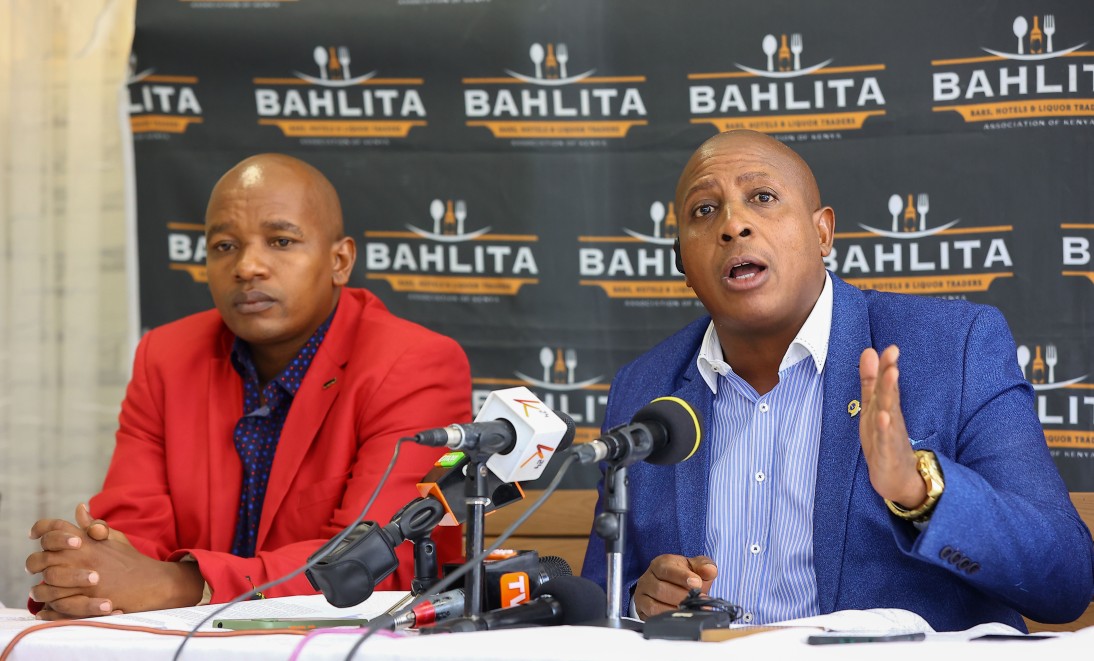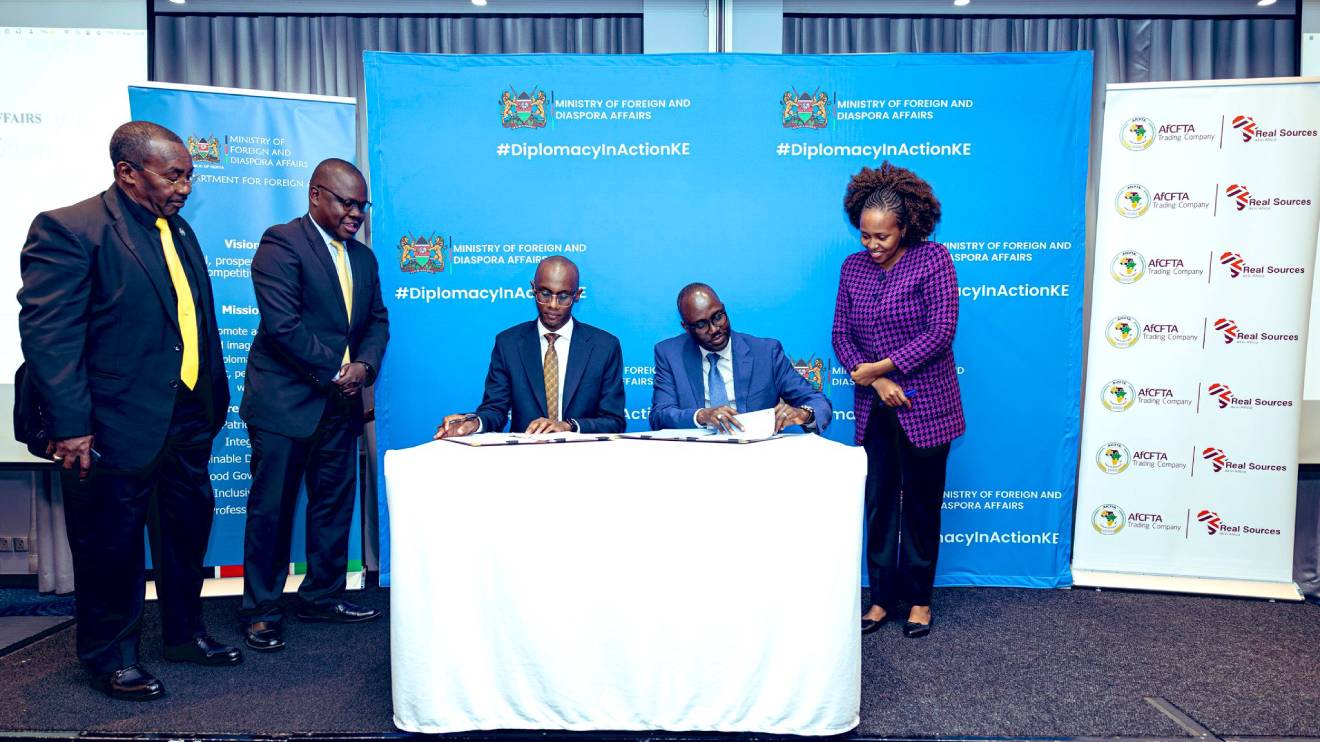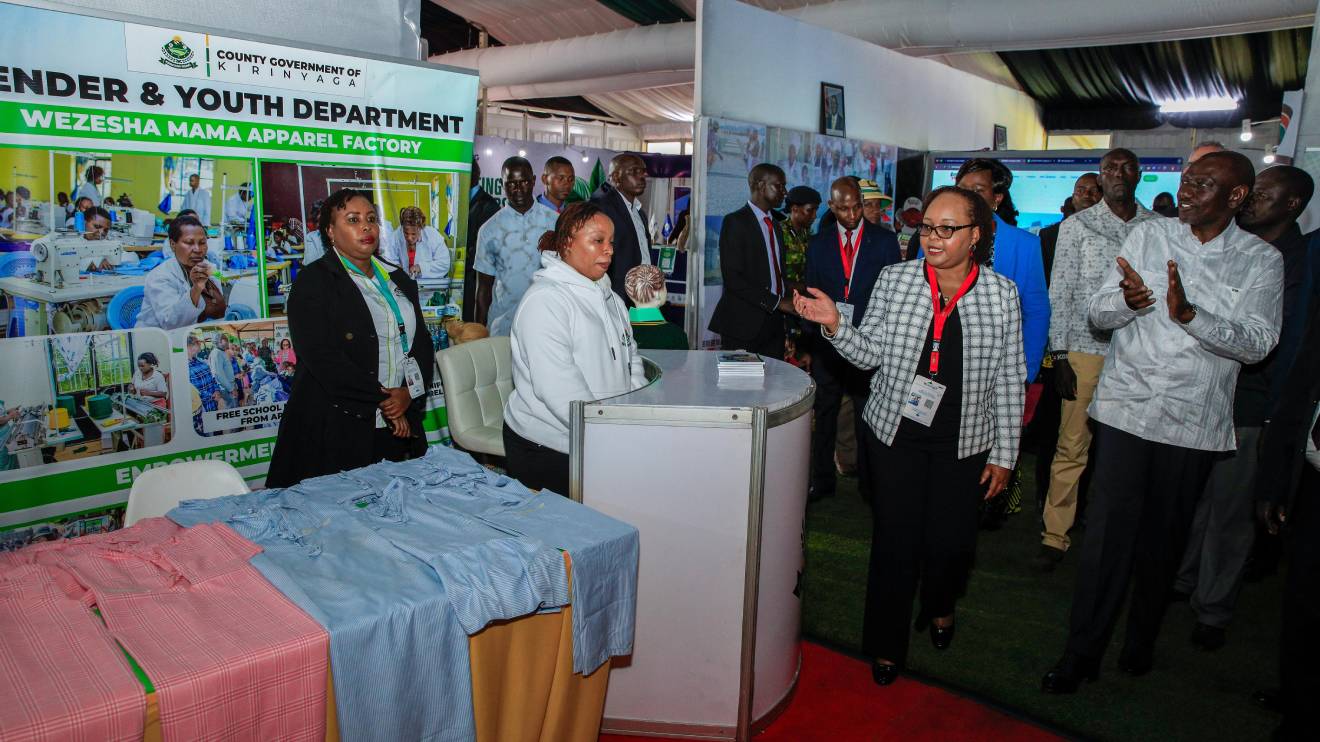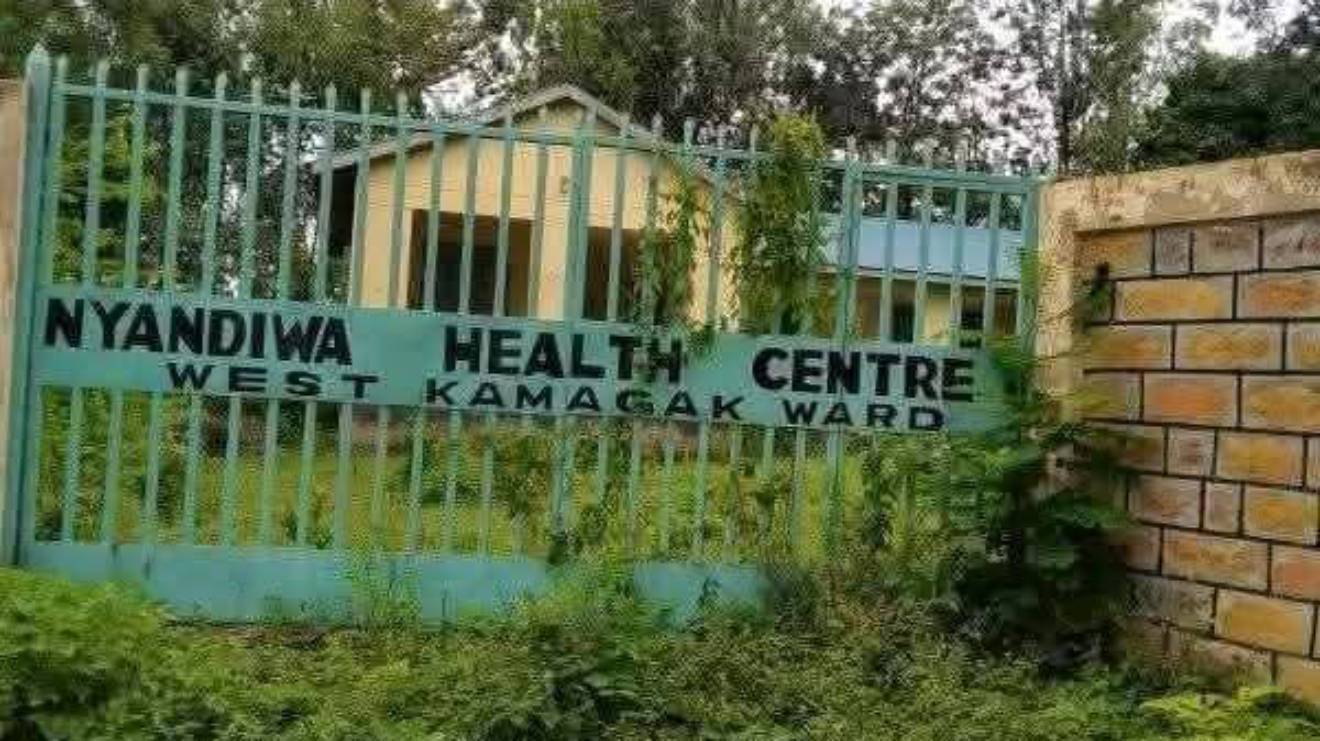The National Bar Owners Association has requested that both the national and county governments engage in extensive consultation and abide by the tenets of a free-market economy whilst implementing an agreement reached last week concerning the regulation of the alcoholic beverage sector.
The association's members conveyed that the agreements formulated during a meeting in Nyeri last week under the leadership of Deputy President Rigathi Gachagua necessitate caution on the part of the two levels of government.
In a press conference held in Nairobi, the association emphasized that the governments must achieve a delicate equilibrium between addressing social concerns and preserving a business-friendly environment that fosters investment and job creation.
Secretary-General of the association, Boniface Gachoka, emphasized that if a unilateral approach is adopted towards this issue, it would lead to an increase in illicit trade, subsequently depriving the government of its due share of revenue in the form of taxes.
“A unilateral approach to this menace will mean that there will be a proliferation of illegal trade thereby denying the government its fair share of revenue in form of taxes,” Gachoka said.
Read More
The association holds the opinion that the campaign, led by Deputy President Rigathi Gachagua, is a commendable initiative as it would encourage public involvement and the engagement of all stakeholders in addressing the issue at hand.
As per the statement released last Friday, the association remarked that the outlined strategy provides a well-organized plan for tackling the menace of alcohol abuse.
However, they highlighted that the sudden hike in taxes on alcoholic beverages has resulted in consumers, particularly those with lower incomes, gravitating towards illicit liquor that is both inexpensive and, unfortunately, readily accessible in the market.
“The problem in alcohol abuse begins with the easy availability of illicit alcohol in the market, much of it the product of suspicious manufacturers,” said Gachoka.
The association highlighted that despite the communiqué issued in Nyeri, the harassment of bar and liquor traders has persisted in Kiambu, Murang'a, Kirinyaga, Embu, and Laikipia, through unwarranted and unjustified arrests under the guise of exceeding business hours.
Furthermore, the association expressed their dissent towards the proposition to restrict the number of alcohol outlets per area, as they believe it constitutes government interference with the affairs of legitimate investors who ought to be permitted to establish their businesses and compete openly in the market for patrons.
The association also stated that addressing the issue would necessitate the establishment of uniform liquor regulations by county governments to ensure consistency and predictability.
The association's chairman, Simon Njoroge, has stressed that the proposal to conduct a census of manufacturers and distributors of alcoholic beverages within counties must be executed using established guidelines and regulations to ensure the survival of only legitimate businesses.
Njoroge believes that ensuring product quality in the market is crucial to curbing the issue of alcohol and drug abuse
“On the proposal to undertake a census exercise that covers manufacturers and distributors of alcoholic drinks within counties, the association’s view is that it is essential that this is done with a well-established structure and rules to ensure that only legitimate businesses thrive. As we have often stated, the problem with alcohol and drug abuse starts with checking the quality of the products in the market,” Njoroge said.
The association said the proposed amendments to existing regulations should be preceded by comprehensive stakeholder engagements across the country, incorporating best practices and aiming to foster an enabling business environment.
They said the proposal to map, vet and inspect outlets selling alcohol is welcome but it would be crucial to ensure the criteria is agreed upon beforehand and published to provide businesses with clear guidelines.
Bahlita also backed the proposed closure of all unlicensed outlets and have the vendors prosecuted since unlicensed outlets are a major contributor to alcohol abuse as they trade in unregulated illicit products while at the same time denying the government the much needed revenue.
The association has called for extensive stakeholder consultations before implementing proposed changes to current regulations, aiming to create a conducive business environment.
They also support mapping and inspecting alcohol outlets, but recommend defining criteria in advance to provide clear guidelines to businesses.
Furthermore, they back the proposed closure of unlicensed outlets and prosecution of vendors to curb alcohol abuse and increase government revenue.
"Bahlita wishes to categorically state that it supports the government’s efforts in fighting illicit brews in the country. However, we reiterate that the implementation of such measures should not be detrimental to the entrepreneurs who are conducting fair business across the country,” said Mr. Njoroge.










